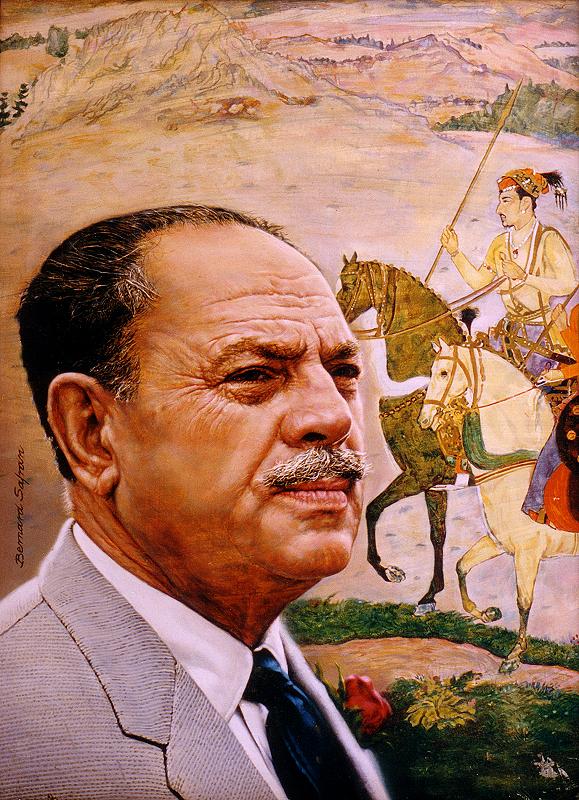But Pervaiz Musharraf never bothered to reply these people in same tone or at their level, now this is one of the very important point people. He had a lot of flexibility to accommodate people no matter how those people used to be personal at times, like AITEZAZ AHSAN, he fall from such a level to such a low level, being personal…similarly so many other people, but did our ex-president ever went to that level ? Now this habit of him made us realize that how personality wise this person was. Mr nawaz shareef, in starting 5 years never gave any statement when he was in saudi arab, but day he landed to London, and then later on Pakistan, day and night, sleeping or waking, he had only one thing on his mind, and every statement or speech reflected something called ‘‘personal’’.
Now if you are claiming to be a leader of the nation, then you need to be clear in your concepts, what is good for the nation and what is bad. Like our ex-president only focused on 3 points always:
1) Strong economy
2) No Mullah
3) No rubbish statements for political opponents
Then if you people remember, in democratic times (1988-1999), except PTV, no channel was ever allowed to be on air? Only PTV showing, that everything is going perfect, mian sb or bibi did this and this whole day, and everything is going perfect in country. It was Sir Musharraf who initiated this media freedom, and because our nation was getting this freedom for the very first time, so what they showed on channels all the times, was mind blowing. i will quote an example for this media freedom in this way, like if someone was hungry for so many years and you gave him all of a sudden an unlimited food, what he is gonna do ? Surely he will over eat because he got it first time…and all the political / financial parties own these channels, and what they did, they never behaved in neutral way, round the clock propaganda, showing everything in negative way, making people frustrated for their own political benefits.
PPP or democracy people have this argument that oil prices raised bcoz of international rise…. I have strong argument for this thing too.
If PML-Q used to rise prices or let’s say musharraf used to rise them, u used to say to people that this govt has failed…. no matter that rise was bcoz of international market too, but u used to project with help of media that its musharraf , who raised these prices.
In 1999 we had almost per litre petrol price almost Rs. 32 (may be one or two rupees up or down)
In November 2007, at the end of shaukat aziz govt, it was almost Rs. 58 per litre. , In 8 years Rs.58 - Rs..32 = Rs 26. So in 8 years (including all international petrol rising prices), we experienced 26 Rs. rises. Means Rs.. 3.25 / year rise. Now in January I do accept that record rise in international market occurred, because record was broken every day, so record falling of prices expected too, this democratic govt kept on rising prices, one day 3 Rs., one day 4 yrs, and they were waiting for that point that when it will fall down (means no more going up), that day finally came, and they increased the price rs. 10 (which has never been done in history of Pakistan, Rs. 10 all of a sudden).
DONT know how people can become so thankless? May be they are expecting that people who say ROTI KAPRA MAKAAN (Bread Cloth Shelter) are so sincere in providing them every such things for free? And now they are getting back to their senses, and some have started saying that PPP has decided not to give us roti kapra and makaan , rather they are more interested in snatching these things (in case if someone has already had it by mistake)
In the end I would like to mention, that personally I am not against anyone, we all are human beings, but we must always remember that who did what in his own time.
We can surely afford ”democratic dictatorship of Musharraf” and cannot afford ” such democracy which is based on dictatorship”, And I would like to add and it follows as:
“A good dictatorship” or “A poor democracy” or vice versa. What all citizens want is a good system - a good law and order - a good sovereignty of country where government is liable to protect the rights of its citizens






 arity of Benazir Bhutto. Similarly Pml-q was established by Pervez Musharraf.
arity of Benazir Bhutto. Similarly Pml-q was established by Pervez Musharraf.
 the amputation of the right hand of the offender from the joint of the wrist by a surgeon. For robbery the right hand of the offender from the wrist and his left foot from the ankle should be amputated by surgeon. According to my own judgment these was a very strict rules but yet proved to be very effective at that time.
the amputation of the right hand of the offender from the joint of the wrist by a surgeon. For robbery the right hand of the offender from the wrist and his left foot from the ankle should be amputated by surgeon. According to my own judgment these was a very strict rules but yet proved to be very effective at that time. thing implying disrespect to Muhammad,Ahle Bait(family of the prophet), Sahaba(companions of the prophet) and Sh’ar-i-islam(Islamic symbols) punishable with imprisonment or fine, or with both.
thing implying disrespect to Muhammad,Ahle Bait(family of the prophet), Sahaba(companions of the prophet) and Sh’ar-i-islam(Islamic symbols) punishable with imprisonment or fine, or with both.


